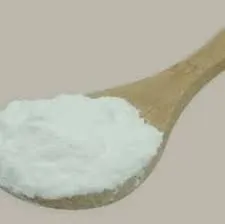Boiler Water Chemical Treatment Ensuring Efficiency and Longevity
Boiler systems are integral components in various industrial processes, generating steam and heat needed for production and comfort. However, maintaining optimal performance and extending the service life of these systems requires diligent attention to boiler water chemical treatment. This process helps prevent scale formation, corrosion, and other issues that can significantly impair system efficiency.
Boiler water treatment involves the addition of specific chemicals to the feed water. These chemicals are designed to neutralize harmful substances, manage pH levels, and inhibit corrosion and scaling. One of the primary concerns in boiler systems is scale buildup, which consists of mineral deposits that form on the heat transfer surfaces. Scale acts as an insulator, hindering heat transfer and leading to increased fuel consumption and potential overheating. The treatment often includes the use of scale inhibitors, which work by modifying the physical and chemical properties of minerals, preventing them from forming deposits.
Corrosion is another major challenge for boiler systems. The presence of dissolved oxygen, carbon dioxide, and other corrosive agents in water can lead to significant damage over time. To combat this, chemical treatments include oxygen scavengers, such as sodium sulfite or hydrazine, which effectively remove dissolved oxygen from the water, reducing the risk of pitting and general corrosion. Moreover, alkaline treatments can adjust the pH of boiler water to maintain a balanced environment that further protects against corrosion.
boiler water chemical treatment

Regular monitoring and testing are crucial components of any effective chemical treatment program. Parameters such as pH, conductivity, and the concentrations of specific chemicals must be regularly assessed to ensure the treatment is effective. This ongoing analysis allows for the timely adjustment of chemical dosages to counteract fluctuations in water quality, feed rates, and system performance.
It is also worth noting that the choice of chemicals and treatment protocols may vary based on the type of boiler in use, whether it is a fire-tube, water-tube, or electric boiler, as well as the specific operational conditions. Implementing a tailored chemical treatment plan can significantly enhance the performance and efficiency of the boiler system.
Additionally, sustainable practices in boiler water treatment focus on minimizing environmental impacts. Using eco-friendly chemicals and optimizing water usage not only align with regulatory standards but also enhance the overall sustainability of operations.
In summary, effective boiler water chemical treatment is essential for maintaining system efficiency and longevity. By preventing scale formation and corrosion, optimizing water chemistry, and performing regular monitoring, industries can ensure that their boiler systems operate at peak performance. An investment in proper water treatment ultimately leads to cost savings, increased reliability, and extended equipment life, making it a fundamental aspect of effective boiler management.

